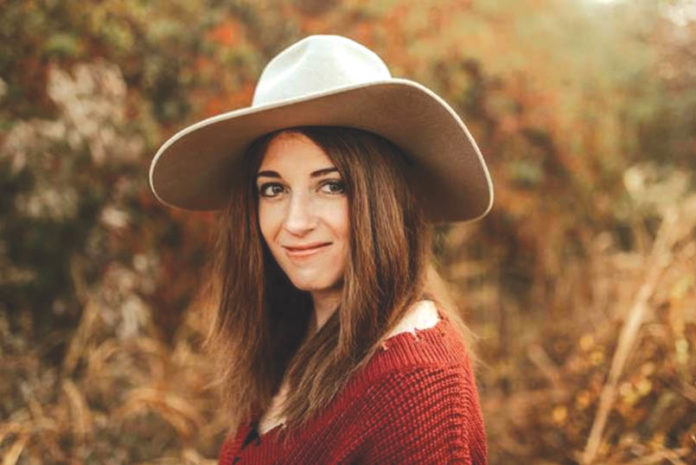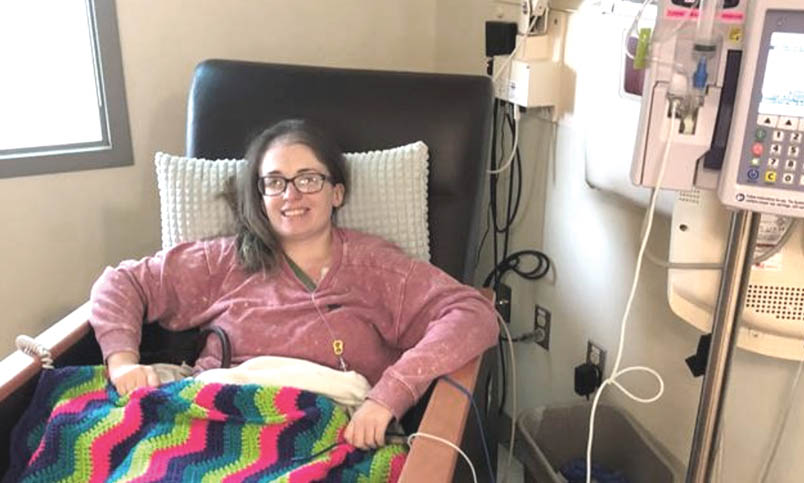

Larae Sorrels of Enid was 27 years old when she started experiencing what she thought were just terrible menstrual cramps. She went to see several OB/GYNS before a mass was discovered obstructing her bowels. Sorrels admits at first, she didn’t really think much of it. “I thought finally I knew what was causing my problems. I thought they’ll remove the mass and that will be the end of it. Never in a million years did I think it was cancer.”
Sorrels was diagnosed with stage three colon cancer. She confesses, it was a hard pill to swallow. “There was a lot of anger. I remember thinking this is an old man’s disease and here I am in my twenties being forced to wear a colostomy bag.”
Larae has no family history of cancer and never even knew anyone with cancer, so she was truly blindsided by the diagnosis. “I had just been accepted to nursing school in Kentucky. Then two days later I was being admitted into the hospital,” remembers Sorrels. “I thought my life was ruined and I sank into a very dark place.”
“Nobody knows for sure why colorectal cancer numbers are rising in young people,” says Sumbal Nabi, M.D., with the INTEGRIS Cancer Institute in Enid. “A sedentary lifestyle, high blood sugar, vitamin D deficiency and eating a lot of red meat have all been associated with the disease. Heavy alcohol use and conditions such as type 2 diabetes are also possible causes.”
She adds, “When someone is diagnosed with cancer at a young age, people automatically suspect genetics, but experts still haven’t been able to use genetics to explain the surge.”
Sorrels says eventually she was able to pick herself up, dust herself off and give herself an attitude adjustment. “I could have stayed mad at the world, but I finally realized that everyone goes through hard stuff. I told myself I had a decision to make. I could choose to stay down, or I could choose to make the most of the situation and crawl my way out. I chose the latter.”
Sorrels enrolled in the nursing program at Northern Oklahoma College. She attended class all through her treatment, even carrying her medicine pump with her around campus.
Instead of the 12 rounds of chemotherapy she was initially prescribed, Larae ended up only needing eight. She has been in remission since Dec. 2019. She says the entire experience will make her a better nurse. “I feel like I will be able to relate to my patients because I’ve been there,” Sorrels proclaims. “I can help them see past their current circumstance and see a brighter future.”
She continues, “Even if I could go back and change what has happened to me – I wouldn’t. It was a tough road, but it led me to some great things.”
Sorrels is now cancer free, in a serious relationship and will graduate nursing school in May 2022. She hopes her story will serve as an inspiration to someone out there who needs it.
Colon cancer can take many years to develop, so early detection is key. Starting at age 50, you should schedule your fist colonoscopy. And if you are of African American decent or have certain hereditary conditions, you may need to start much sooner.
People with a first degree relative with colon or rectal cancer should begin screening colonoscopies at age 40 or ten years before the diagnosis of the relative, whichever comes first. To schedule a colonoscopy today, visit integrisok.com/colonoscopy.













